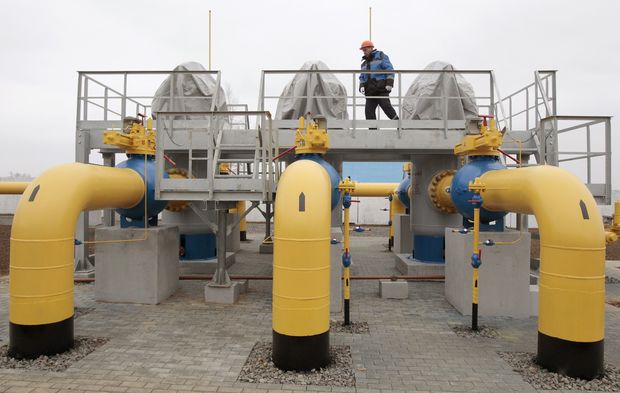Why does the Verkhovna Rada lease the gas pipe?
In the future, a consortium on Ukrainian gas transportation system management will relieve us from gas dependence on the Kremlin
Last week MPs made a historic step and supported a law on reforming Ukraine’s gas transportation system (GTS) in the second reading with revisions and amendments. The document prohibits any privatization of the system. “The aim of the law is to have the EU and the US as operators of the Ukrainian GTS, where Ukraine controls the company and where the Ukrainian state preserves ownership over the Ukrainian GTS and Ukrainian gas storage facilities. The Ukrainian GTS remains completely state-owned property,” Prime Minister Arsenii Yatseniuk summed up during the presentation of the law at the Verkhovna Rada. Russia is removed from participation in the consortium on management.
It is said in the adopted amendments that control of the gas transportation system cannot be transferred with the parliament’s consent only. The state of Ukraine announces a public tender to attract investors for the modernization and operation of the GTS. Only appropriately certified companies from the EU member states or the US are eligible as investors. The so-called operator company is controlled by Ukraine exclusively. Moreover, 51 percent of it belongs to the state, and 49 percent to the EU or the US.
Also, a clause was added that during the tender stage, a company that is a resident of the EU or the US, is obliged to disclose all information on structures of its property and reveal all beneficiaries who are owners of this company. “If a company that won the tender decides to change the structure of its ownership, such decision can be made only in case the Ukrainian side agrees to it. It can happen that a company that is a resident of the EU wins the tender, and then the ownership structure changes, and it will become property, for example, of the aggressor under the label of the EU,” Yatseniuk explained. The managing company has to report once every five years, including a report to the Verkhovna Rada.
Amendments are substantial. But even the prime minister himself realizes that investors will not be getting in line to put money into our GTS, because there is a war in the country, and a part of the gas transportation system is under separatists’ aimed fire. “These additional demands burden the project. There is no line of those willing to invest in Ukrainian GTS. But we must take steps... so the EU becomes interested in the increase of gas transit through Ukraine and respectively, so we would make more money,” Yatseniuk convinces. At the end he added that this would also make Europe think twice before building the South Stream.
Will the adopted law relieve Ukraine from gas dependence on the RF and make future pressure from the Kremlin impossible?
Expert on energy issues Valentyn Zemliansky thinks this document only intensifies gas dependence on the RF. “In the current political situation the document is very good, because it seems to be restraining the aggressor’s penetration into Ukraine’s energy sector. But from the economic point of view, there is nothing positive in making such a decision. And becoming free from dependence on Russia is out of question,” he says. Why? Firstly, explains Zemliansky, the Ukrainian GTS operates on Russia’s technical gas. Secondly, whether we want it or not, it is Russia that pumps gas through Ukraine’s pipe and thus allows the government to make money on it. “And if Russia decreases volumes of pumped gas in the mid-term perspective, Europeans will not invest in this project, since it will not be profitable,” the expert explains. Thirdly, Europe is content with the existing system of contracts for gas supply with Gazprom. “Who told you that the EU wants to change something? Its contracts, unlike Ukrainian ones, provide that European companies have a right to review the price of gas with Gazprom. Why does Europe need to settle problems of Russian gas transit through Ukraine?” he asks.
Europeans are really not interested in revising the current scheme and entering a consortium on the GTS management, tells The Day Bohdan Sokolovsky, former representative of ex-president Viktor Yushchenko on international energy security issues. However, he is convinced that Ukraine can change it. Sokolovsky thinks that for this an economic sanction against Gazprom has to be implemented that would prohibit the transit of gas across Ukraine’s territory to the EU. Then the latter would be forced to accept the change of rules. “It is discomfort for Europe. But the EU can order its energy companies to reorient for cooperation with Ukraine in the matter of the GTS management, and thus overhaul the whole system of energy supply. However, I realize this is impossible to do in just two or three months. But it must be started now,” Sokolovsky thinks. In perspective the adopted law on the GTS management will allow to weaken gas dependence on Russia, he sums up.






